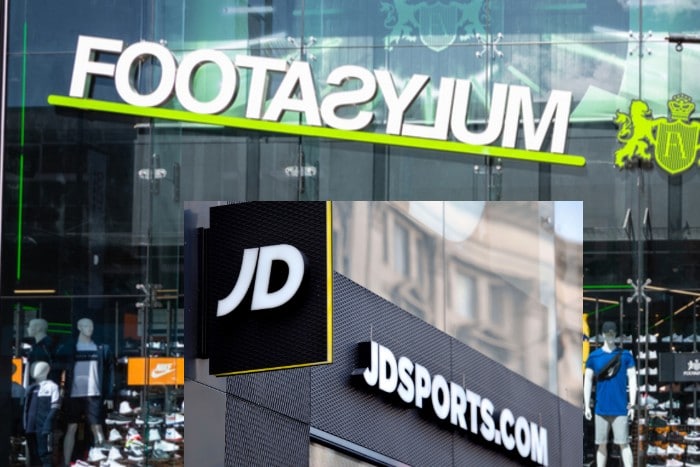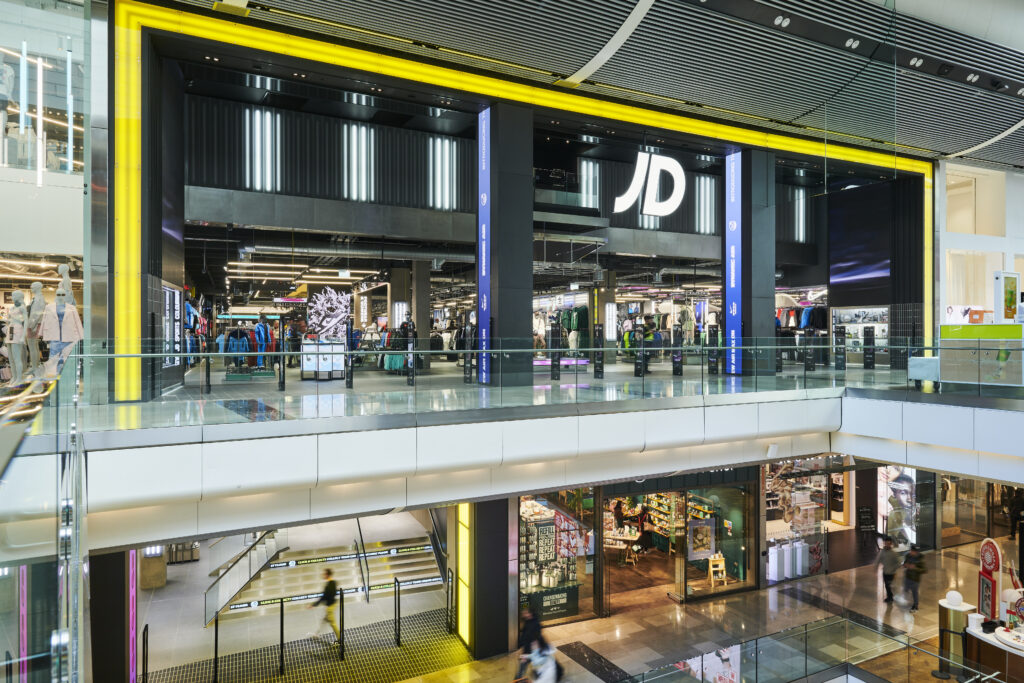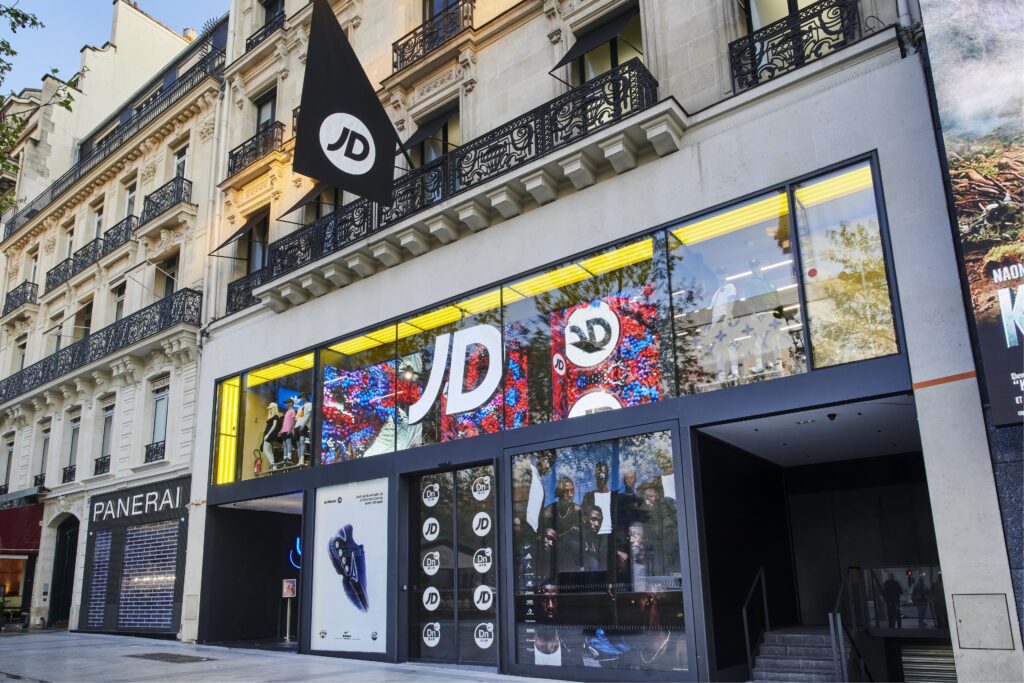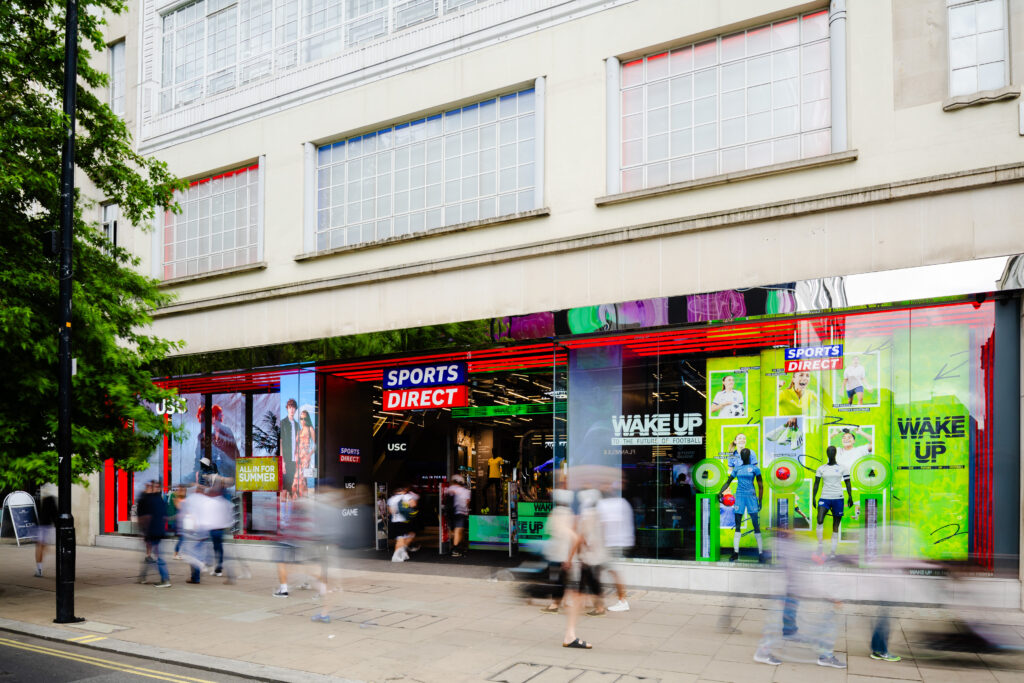// The CMA has revealed its provisional findings on the proposed £90m takeover of Footasylum by JD Sports
// The CMA said shoppers would be worse off, and the deadline for its final report has been extended to May 11
// JD Sports criticised the CMA’s provisional findings, and refuted the claim that the merger could lead to less competition & less choice for consumers
The CMA has JD Sports’ proposed £90 million takeover of Footasylum could leave shoppers worse off, and that forcing a sale might be the only way to protect consumer interests.
In its provisional findings published today, the UK’s peak competitions authority said it was concerned that the loss of high street competition resulting from the merger could mean shoppers see fewer discounts from clearance sales and promotions, a lower quality of customer service and less choice in stores and online.
The CMA said it would ask for views on its provisional findings by March 3 and possible remedies by February 25 and will assess all evidence provided before making a final decision.
READ MORE:
- £90m Footasylum takeover will “benefit” customers, JD Sports says
- JD Sports posts Christmas sales growth despite “retail challenges”
- JD Sports leaves rivals in its wake after shares rise 3200%
The watchdog also said the deadline for its final report on the proposed merger has been extended to May 11.
“This is a large and growing market in the UK, so it is important that the CMA carefully scrutinises a deal between two key rival businesses,” said Kip Meek, chair of the independent inquiry group leading the investigation.
”We’re currently concerned that shoppers could lose out after the merger, for example through fewer discounts and less choice in stores and online.
“This could particularly affect younger customers and students, who shop in JD Sports and Footasylum.”
JD Sports rejected the CMA’s provisional findings, arguing that it does not reflect “the intensive and dynamic competitive reality of the UK sports retail market”.
“A large number of retailers selling third-party brands compete not only with each other, but also with major online pure-players and, most importantly, the increasingly powerful direct to consumer operations of the international brands themselves,” JD Sports stated.
“The CMA has failed to recognise and accept clear evidence of the rapidly changing nature of this market, which has materially altered even during the period of the CMA’s review.”
The sportswear retailer went on to acknowledge that some parts of the CMA’s provisional findings were correct, particularly its views on online and physical stores competing in the same market, how customers use these channels “interchangeably”, and growing market share from Nike and Adidas’ direct-to-consumer channels.
“Given these findings, we cannot comprehend how the CMA concludes that Nike and Adidas, will not be significantly stronger competitors in the marketplace over the next few years,” JD Sports said.
“Experienced analysts in this sector simply would not recognise this conclusion.
“Further, the suggestion that ‘there could be fewer discounts and less choice in stores and online’ is entirely at odds with our continuing drive to provide a market-leading, best in class consumer focused experience with consistent standards across our global territories.”
JD Sports said it anticipated Footasylum would contribute less than two per cent of the group’s earnings in the year to January 2020.
JD Sports executive chairman Peter Cowgill said: “The CMA’s provisional decision is fundamentally flawed and demonstrates a complete misunderstanding of our market to an alarming extent, given its six-month review.
“The competitive landscape described by the CMA is one which neither I, nor any experienced sector analyst, would recognise.
“Just take a walk down any major UK high street or search for Nike or Adidas trainers on Google and you can see for yourself how competitive this marketplace really is.
“The CMA’s provisional findings do not reflect the objective evidence, with excessive weight being placed on surveys asking hypothetical questions of a small sample of selected customers equivalent to less than 25 per cent of the footfall of one JD store in Manchester for one week, rather than assessing the reality of how consumers actually shop on a national scale.
“When the group made its offer in March 2019, it was our intention to support Footasylum and its employees to grow the business and increase the quality, range and choice of products available to customers.
“We remain convinced that a combination of the two businesses would provide significant long-term benefits to customers, colleagues and brand partners, while maintaining Footasylum’s presence on the high street as the music-inspired casual retailer which it is today.”
The CMA started its investigation on JD Sports’ proposed takeover of Footasylum last July, and it was escalated to a Phase II probe in October after it warned it could lead to “higher prices, less choice and a worse shopping experience for customers”.
JD Sports first announced in March 2019 that it would acquire Footasylum and the deal was greenlit by shareholders by the next month.
JD Sports had already owned a stake in Footasylum, having bought 19 per cent of its issued share capital in February.
A £90 million deal for the remaining shares was made and the acquisition subsequently became unconditional on April 12.
By May 2019, JD Sports had snapped up almost all of the shares in Footasylum.
Shortly after, the CMA issued both JD Sports and Footasylum an initial enforcement order whereby they were banned from taking any actions to integrate the two businesses until a final decision is made.
Click here to sign up to Retail Gazette‘s free daily email newsletter

















